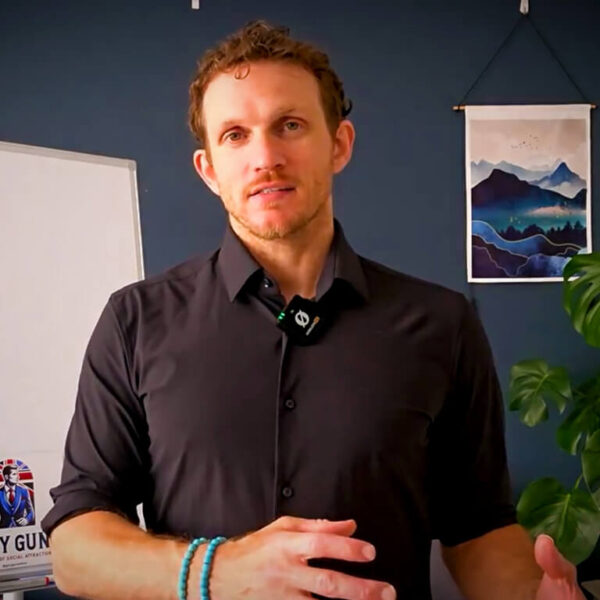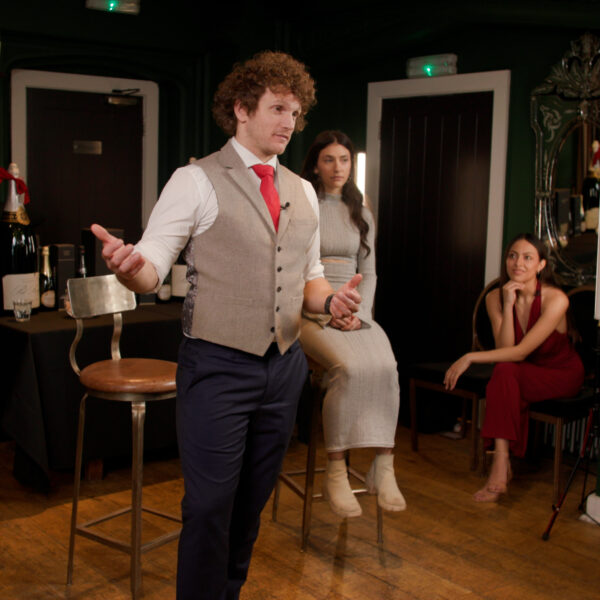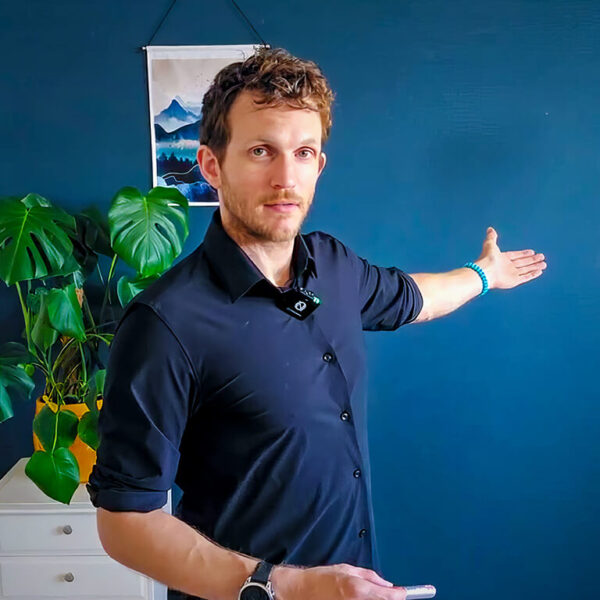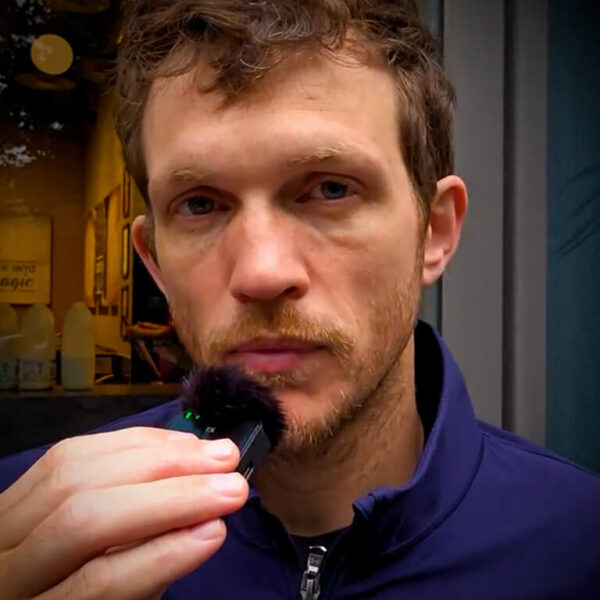
The Problem With Forced Gratitude
If you’re like me, you’re probably frustrated with being told you need to be more grateful. Authentic gratitude is the answer, they say. You tend to see a lot of people, either deeply spiritual or just posing as such, constantly preaching that gratitude is everything.
Be grateful in your morning shower. Be grateful for three things each day. Journal about gratitude.
But here’s the problem: if you’ve ever tried this, you’ll realize how ridiculous it can feel. You’re forcing a feeling. It’s like telling someone to be excited every day—so jump up and down and pretend. What’s the actual point? What’s the benefit?
I’ll be doing another piece on mindfulness soon, because I find that equally painful to listen to. When you actually ask questions, you quickly realize that many people using these buzzwords have no real understanding of what they’re talking about.
So in this blog, I’m going to clear up the confusion.
The Core of Authentic Gratitude
Gratitude is amazing—authentic gratitude, that is. But there’s one core concept you must understand, or it’s all meaningless. Let me explain.
Take two professional sports teams. One wins every single year. The other hasn’t won anything for 30 years, then finally takes home a trophy.
Which one is more grateful? The answer is obvious.
Authentic gratitude comes when you realize things don’t last forever.
Let me say that again. Gratitude happens when you realize things are temporary.
Stop Living a Story-Based Life
Now I want to build on this, because it’s crucial for every part of your life. This is no-nonsense, practical advice that will impact your thinking and behavior.
In my own spiritual journey, I’ve read a lot of original spiritual texts. One of my favorites is the Dao De Jing, which shares a principle that ties beautifully into the idea of authentic gratitude.
Unless you’ve read that book, you probably view life as a story. You woke up, had breakfast, went to work. I woke up, played with my dog, now I’m writing this.
That’s a story-based narrative. But the Dao De Jing explains that this perspective causes many of our emotional problems. We buy into our own story.
What they teach instead is that each experience is independent.
Does it matter how I got here today? Does it matter why I’m writing this? The only important part is the experience I’m having right now.
That’s powerful.
Applying This to Real Life
Think about this in your dating life. You meet someone you like. You tell yourself a story. She liked me. We had fun. Then she doesn’t text back, and now it doesn’t make sense. But it’s not the situation that’s confusing—it’s your story that doesn’t make sense anymore.
If you ditch the story and focus on individual experiences, you’ll free up mental bandwidth and cope at a much higher level.
Most of us waste our limited bandwidth worrying, overthinking, and ruminating—especially in dating. I’m all for minimizing stress and maximizing joy in life.
So, how does this relate back to authentic gratitude?
Real Gratitude Requires Uncertainty
Let’s tie these together. Gratitude is more powerful when you understand that things are limited. At the same time, letting go of your life story allows you to fully experience the now.
Here’s how authentic gratitude shows up in my life.
I don’t believe I’ll be a dating and confidence coach forever. Maybe I will, maybe I won’t. If I believed in a linear story, I’d assume this is my forever path.
But I’ve let go of that.
So every time I get hired by a client, I think—this could be the last one. The last time I ever get to coach someone. The last person I might ever help.
How does that make me feel?
It makes me feel genuinely grateful. Deeply. Authentically.
If I assumed I’d always have new clients, how could I possibly be grateful?
Here’s the truth: when you think things last forever, it’s impossible to feel authentic gratitude.
Try This Shift Today
Try this in your own life.
When you take a shower, say to yourself, “This could be the last shower I ever have.”
When you walk your dog, think, “This could be the last time I ever do this.”
You might ask, isn’t that exhausting?
No, it’s liberating.
When you’re stuck in a story-based life, you’re always thinking about what’s next. Next step, next task, next goal.
But when you shift your focus to the experience you’re having right now, life gets more meaningful.
For me, writing this could be the last blog I ever write. So I’m putting my all into it, saying exactly what I feel, and enjoying the process.
The Philosophy Behind It
This perspective also connects with Stoic philosophy. Approaching each day like it could be your last isn’t depressing—it’s empowering.
What’s fascinating is that ancient texts and teachings—Daoism, Stoicism, Buddhism—all come to similar conclusions. And they were written in different parts of the world, at different times, by people who never knew each other.
Clearly, there’s something universal about this.
Final Thoughts Before We Go Deeper
Let me take a quick tangent on meditation. I once attended a course in Scotland and spoke to a guy who claimed to be into meditation and Buddhism.
He insisted that Buddha meditated his way to enlightenment. I told him that’s not true.
Buddha tried meditation, and it didn’t work. He also tried fasting, self-harm, and other methods. None of them worked.
What finally liberated him was letting go of desire. He called them the three poisons. When he let go of what he was chasing, he became free. That’s when he became enlightened under the bodhi tree.
Why Most People Never Feel Authentic Gratitude
Most people chase good feelings. They chase highs. They chase success. They chase love.
And that’s exactly why they never feel authentic gratitude.
Because chasing comes from a place of lack. You want something because you believe you don’t have it. Even when you get it, your mind’s already on the next thing. It’s never enough.
But when you stop chasing and start noticing, you begin to feel grateful.
That’s when the shift happens. It’s not something you force—it’s something that emerges naturally. And this is where most gratitude advice fails. People treat it like a to-do list:
-
Write down 3 things.
-
Smile more.
-
Think positive.
That’s not authentic gratitude. That’s performance.
Authentic Gratitude Is a Byproduct, Not a Goal
You cannot try to be grateful. You can’t command yourself to feel something you don’t feel. That’s not how emotions work.
Authentic gratitude is what shows up when:
-
You stop telling yourself a story about how life should be.
-
You stop comparing your now to a fictional future.
-
You stop needing everything to go your way.
It’s not a “high vibe.” It’s not a smiley face. It’s not journaling about what you should appreciate.
It’s that moment when you’re walking, or eating, or watching the rain… and you realize:
“This is enough.”
That’s real.
The Freedom of Letting Go
Earlier, I mentioned coaching. Every time I work with a client, I treat it like it might be the last time I ever get to do this work.
And that doesn’t make me anxious—it makes me present.
Because when you let go of “this needs to last forever,” you’re free to appreciate it while it’s here.
Try applying that to your relationships. Your job. Your hobbies. Even your health.
Say it to yourself:
“This might not last.”
“That’s okay.”
“So I’ll show up fully while it’s here.”
That’s what creates authentic gratitude. Not clinging. Not chasing. Not controlling.
Just showing up, fully present.
One Simple Practice That Works
If you want a real-world way to feel more gratitude without forcing it, try this:
At the end of your day, don’t list things you’re grateful for. That’s still a task.
Instead, do this:
-
Sit in silence for two minutes.
-
Ask yourself, “What did I experience today that I might never experience again?”
-
Let whatever comes up, come up.
Maybe it was the way your dog looked at you.
Maybe it was the warmth of your morning coffee.
Maybe it was a conversation that made you laugh.
That’s it. That’s the whole practice.
No pressure. No performance. Just presence.
That’s how you build authentic gratitude—gently, slowly, honestly.
Impermanence Is the Gateway to Gratitude
Let’s revisit a key concept: impermanence.
Everything you love right now—your friends, your health, your career, even your breath—will end. Not in a morbid way. In a natural way. That’s the deal life offers us.
And oddly enough, when you stop resisting that, something beautiful happens.
You start to pay attention.
You listen more closely to the people you love.
You look up from your phone more often.
You slow down. You breathe deeper. You smile for real.
You stop waiting for life to start… and you start living it.
And that’s the moment authentic gratitude arises.
Not because you told yourself to be grateful. Not because a book gave you five steps to feel it.
But because you realized:
“This moment is here. It’s already enough. And it won’t last forever.”
That’s the source.
Chasing Kills Gratitude
Let’s flip this and look at the opposite.
Chasing. Obsessing. Wanting things to be different.
Those are the enemies of gratitude.
When you’re trying to get to the next level, the next partner, the next version of yourself, you start living in fantasy.
You trade presence for potential.
And the irony is, nothing kills authentic gratitude faster than potential.
Because “potential” is a trap. It tells you this isn’t enough. That you’ll be happy later. That gratitude comes after you win.
It doesn’t.
If you can’t feel it now, you won’t feel it then.
Authentic Gratitude Isn’t Flashy
Another myth: Gratitude has to feel big.
Nope.
Sometimes it’s quiet. Sometimes it’s subtle. Sometimes it’s just noticing that your shoulders aren’t tense today. Or your mind feels a little lighter. Or the light outside your window looks nice.
That’s the difference between performance and presence.
Performance says, “Look at me being grateful.”
Presence says, “I’m just here. And this is enough.”
So stop trying to impress yourself with how grateful you are.
Let it be small. Let it be soft. Let it be real.
The Hardest Part of Gratitude Is Letting Go
There’s one final thing you need to know. And it’s the part most people avoid.
To feel authentic gratitude, you have to grieve.
You have to let go of what didn’t work out.
You have to accept that not everything is coming back.
You have to face the truth that some things are already gone.
And that’s hard.
But when you do that honestly… when you stop pretending everything’s fine… when you release the weight of old expectations…
You create space for gratitude to grow.
Because now, you’re not holding on to the past or projecting into the future.
You’re just here.
And that’s where gratitude lives.
This Is What Real Gratitude Looks Like
So let me paint the full picture.
You’re not smiling because someone told you to.
You’re not writing lists because a coach said it builds good habits.
You’re not faking it for Instagram, TikTok, or a journal prompt.
You’re simply here.
Present.
Clear.
Grounded.
And because you know this won’t last forever, you see the beauty in it.
Not just the big moments—every moment.
That’s what authentic gratitude feels like.
It’s not loud. It doesn’t demand attention.
It doesn’t need to be performed or perfected.
It’s real, quiet, unshakable.
It lives in your body, not your to-do list.
And it only shows up when you stop chasing and start noticing.
Final Words (For Now)
If you take one thing away from this post, let it be this:
Gratitude begins when the story ends.
When you drop the narrative, release the expectations, and realize how temporary everything is—then you can truly feel grateful.
And not just for the highlights.
But for the breath you’re taking right now.
The light in the room.
The sound of silence.
The fact that you even exist to read this.
That’s authentic gratitude.
That’s enough.
If This Resonated…
Bookmark this. Re-read it when you forget. Share it with someone who’s tired of faking it.
Because you don’t need more hacks.
You just need to slow down… and see what’s already here.
Thanks for being here. This might be the last blog I ever write.
And if so—I’m deeply grateful you read it.
Written by Gary Gunn
I coach men to build real self-confidence so they can meet, attract and date the women they truly desire.
My coaching is practical, real-world and focused on lasting behavioural change.
Learn More About My Coaching
👉 My Books



















